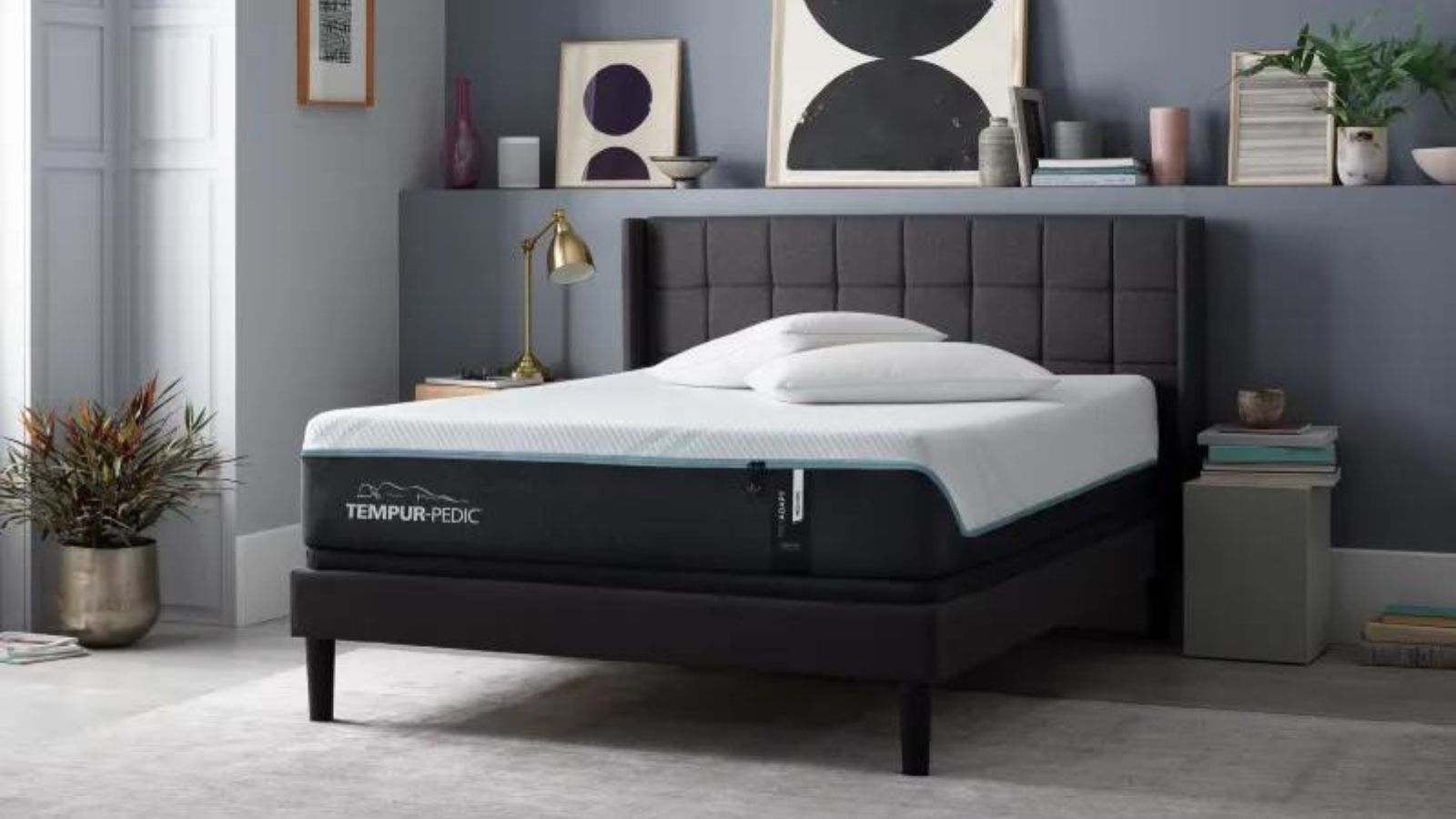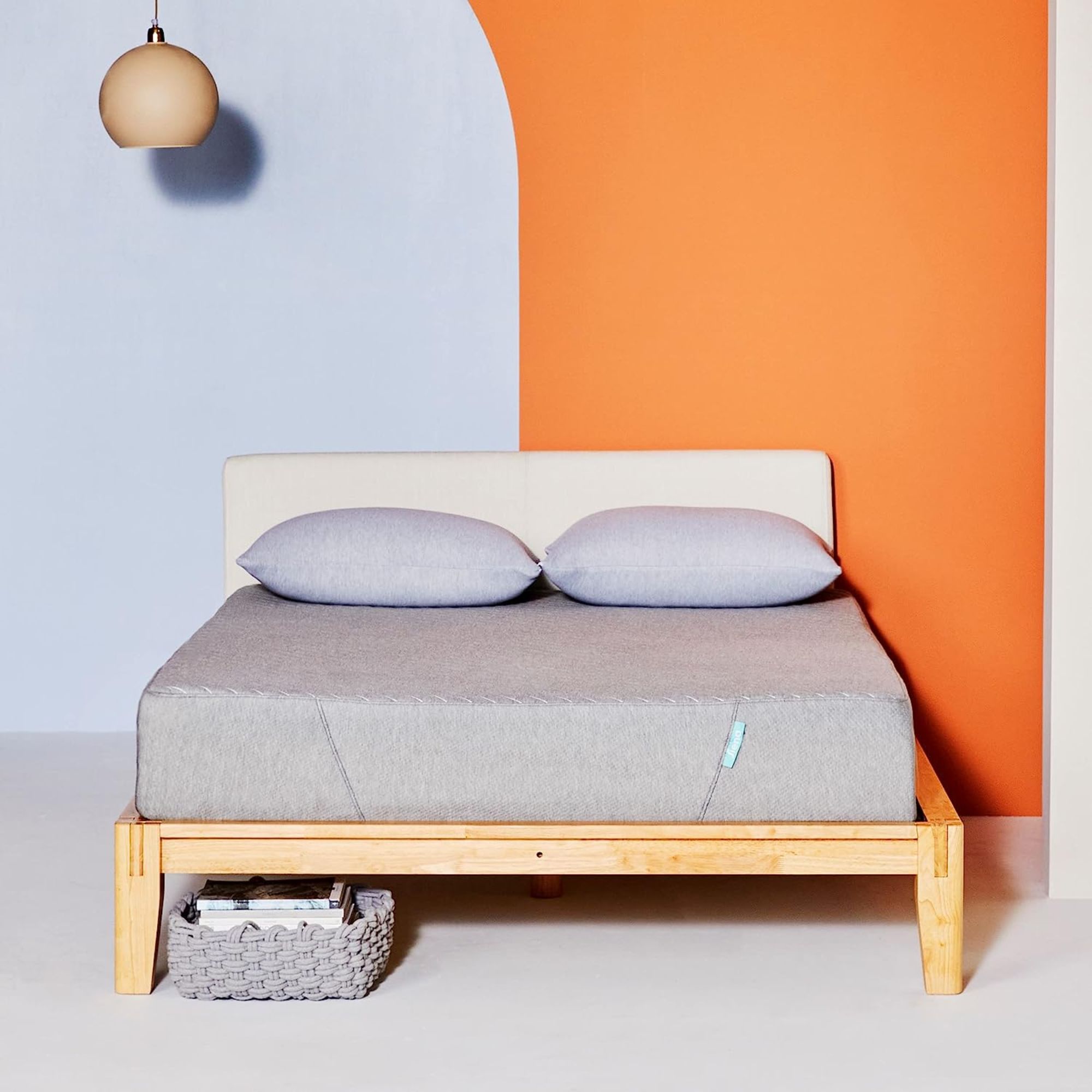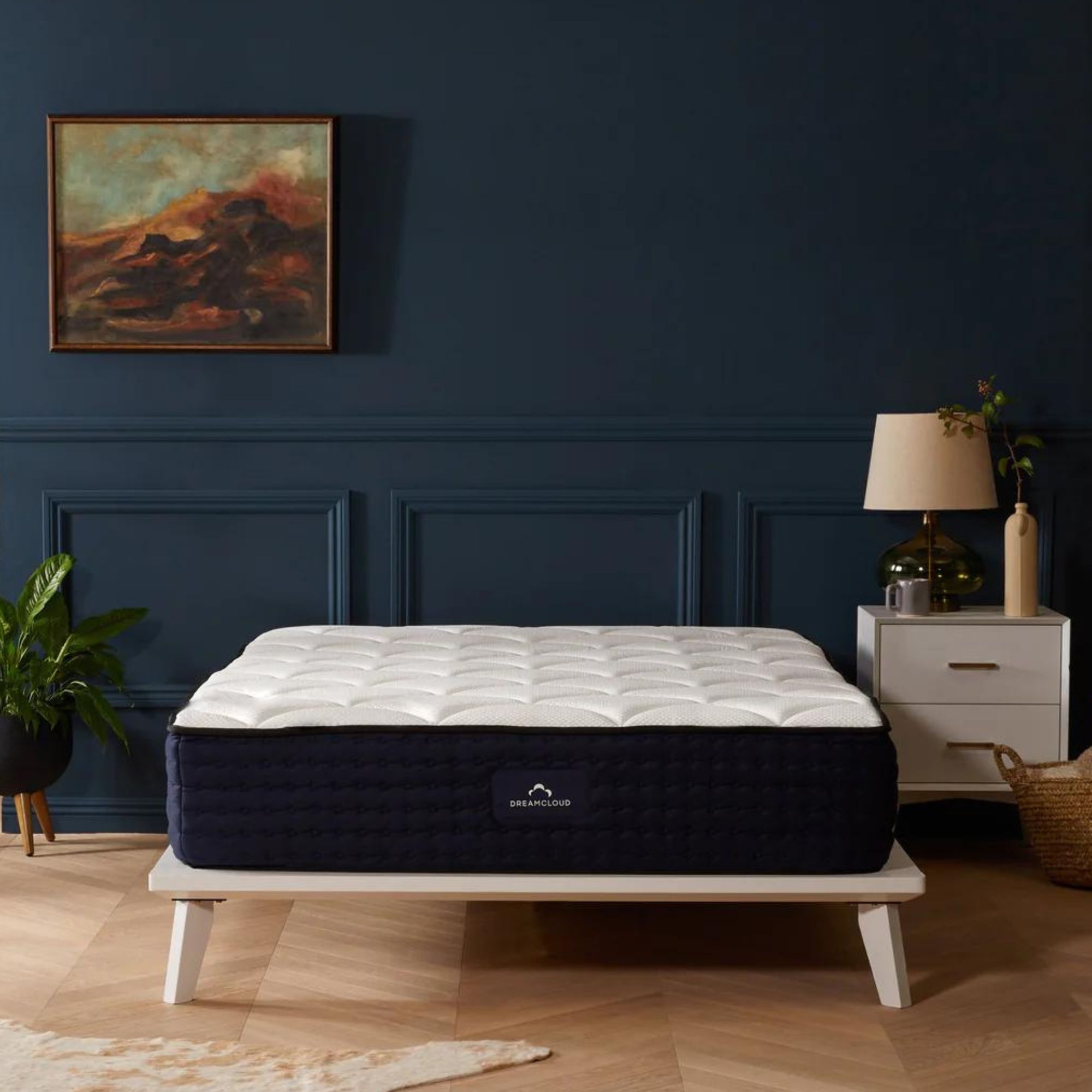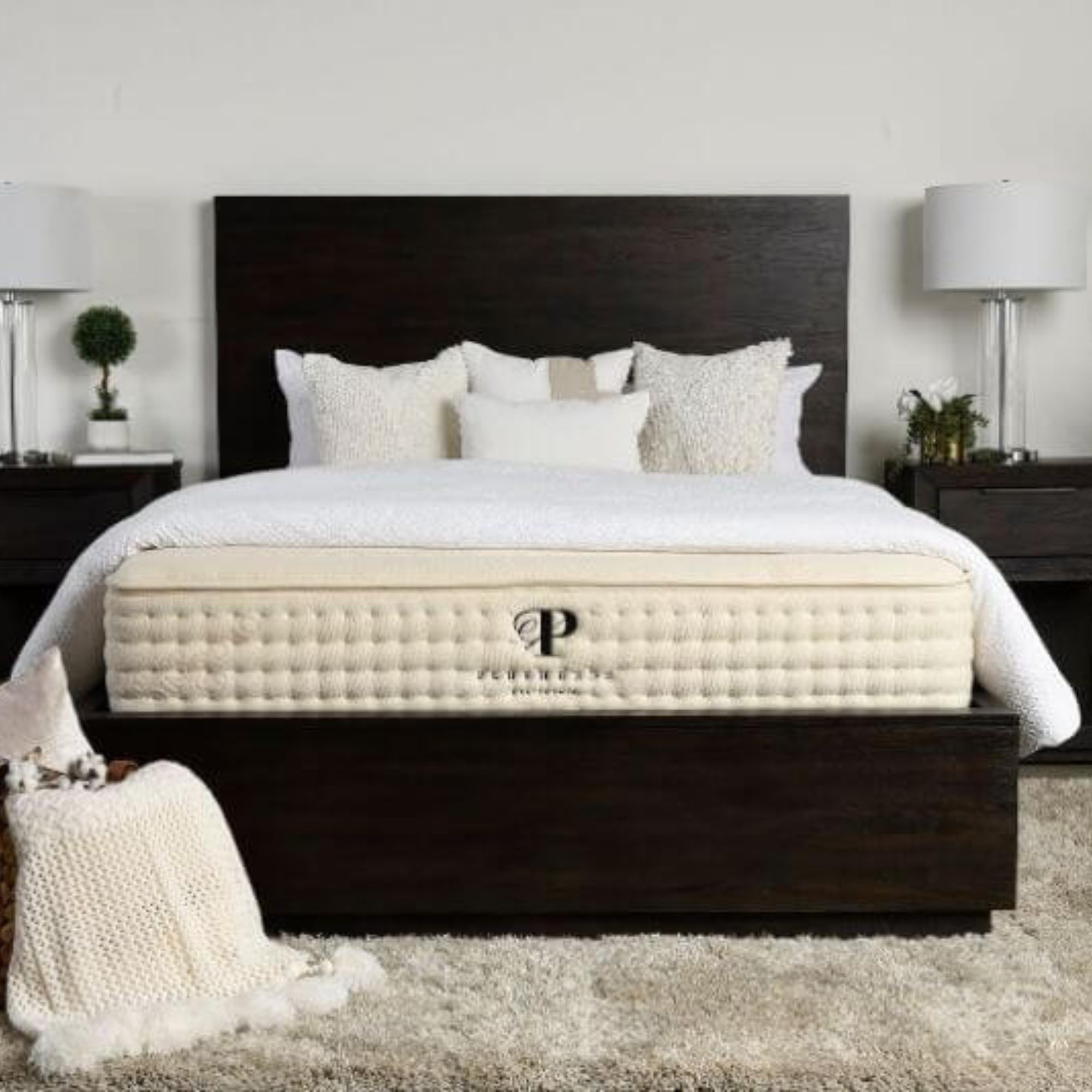How much should you spend on a mattress? Our expert mattress price guide
I asked mattress manufacturers and sleep specialists to explain how much you should spend on a mattress to meet your sleep needs


Since I started working as H&G's resident sleep writer, I've become the go-to girl for all my friends' and family's mattress queries. Whenever someone I know is moving house or upgrading to a bigger bed, I get asked: 'how much should you spend on a mattress?'
I tell them it depends on a whole host of factors, from what percentage of your paycheck you're prepared to spend to what sort of mattress you're hoping to buy. If I had to set a minimum spend, I'd say $500 – you can't spend much less and still expect to get a good mattress. It's harder to set an upper limit, since the price of your mattress largely depends on the quality of the materials and the manufacture. Personally, I wouldn't spend more than $2,000 on a mattress, and that still leaves me with plenty of options.
I lead a team of expert testers in the search to find the world's best mattress. We assess each mattress for comfort, support, breathability, and motion isolation. We also consider all the practical aspects of buying a bed, including the all-important price. I'm perfectly placed to tell you just how much you should spend on a mattress to meet your sleep needs and budget constraints.
How much should you spend on a mattress?
I asked mattress manufacturers and sleep specialists to contribute to our ultimate mattress price guide. We know just how much you should expect to spend on a mattress, depending on the mattress type, the quality of the materials, and the details of the mattress warranty.
Our mattress price guide
The price of a mattress depends on a number of factors, ranging from material matters, such as size and manufacture, to practical details, including mattress sleep trials and warranties. For the purposes of this article, we'll talk about three different mattress types: budget; mid-range; and luxury.
| Budget | Header Cell - Column 1 |
|---|---|
| Description | A basic bed (usually innerspring or foam) best suited for temporary use or guest rooms |
| Average warranty | 5-10 years |
| Average trial period | 30-100 nights |
| Average price | $500 |
| Mid-range | Header Cell - Column 1 |
|---|---|
| Description | Higher-quality foam, innerspring or hybrid models that are durable for daily use |
| Average warranty | 10-15 years |
| Average trial period | 100-120 nights |
| Average price | $1,000 |
| Luxury | Header Cell - Column 1 |
|---|---|
| Description | Made from premium materials, including latex and high-density memory foam, to deliver exceptional cooling and comfort |
| Average warranty | 10-25 years |
| Average trial period | 100-365 nights |
| Average price | $1,800 and up |
You'll find the best budget beds in our best affordable mattress buying guide. Prices start from as low as $399 for a Queen, but the important thing is that the quality matches the cost. You're looking for something that strikes the right balance between comfort and support, made from durable materials that won't wear out within the first few years of purchase.
I'd say that a mid-range mattress could cost anywhere between $800 and $1,500. It's the sort of thing worth saving for, with enhanced breathability and ergonomic support to suit every sort of sleeper.
The best luxury mattress is filled with pocket-sprung coils and natural latex, then wrapped in organic wool, cotton, and cashmere. You have to pay a premium for these sorts of materials, but you can often find a luxury mattress for less in the mattress sales.

This memory foam mattress is the cheapest bed we've ever tested. For just a couple hundred dollars, you get excellent motion isolation and firm support to suit most sleepers. My advice: don't spend any less than this, or you'll be paying a low price for a poor product.
You can find more detail in our Siena Memory Foam Mattress review.

This hybrid mattress makes it into most of our buying guides, and with good reason. You get all the plush comfort of memory foam with the airflow and support of an innerspring. Plus, for a self-appointed 'luxury mattress', it really isn't that expensive.
You can find more detail in our DreamCloud Luxury Hybrid Mattress review.

This latex mattress offers custom comfort to suit every style of sleeper and every size of bedroom. You get to pick the size, height, and firmness of your mattress from a wide range of options. Your mattress is hand-crafted and made-to-order by a team of expert artisans, then delivered to your door in a compact package.
You can find more detail in our PlushBeds Botanical Bliss Organic Latex Mattress review.
What influences the price of a mattress?
I asked clinical sleep educator Lauri Leadley what she thinks makes the best mattress. For Lauri, 'the quality truly comes down to the materials. The more layers in the mattress, and the thicker it feels, the pricier it becomes.'
Lauri explains that 'cheaper mattresses are thinner, with just a few layers of material'. A truly budget bed is unlikely to give you the comfort you want or the support you need. Plus, it'll come with a shorter sleep trial and a less extensive warranty, so if you don't like it, you might need to buy another mattress.
'Luxury mattresses have multiple layers of premium materials, which are more complex and costly to make and manufacture,' says Lauri. Still, she thinks the right luxury mattress would be worth the spend: 'I always spend more on mattresses and shoes − my back and my feet take me everywhere!'

Lauri is the Founder and President of the Valley Sleep Center. It's one of the largest independent sleep diagnostics centers in Arizona, with locations in Mesa, Chandler, Scottsdale, Glendale, and Phoenix.
Patrick Gunther works for PlushBeds, which is one of the best places to buy a mattress for hot sleepers and eco-conscious shoppers − as long as you've got some cash to spare. When I asked Patrick how much you should spend on a mattress, I was pleasantly surprised to hear him say that 'more money doesn't always equate to better quality. It's essential to find a mattress that offers a combination of comfort, support, and durability within your budget constraints.'
Still, Patrick argues that you should 'view the mattress as an investment in your health and happiness. A high-quality mattress can enhance sleep and overall well-being, making it worth your while to spend the extra amount.'
'Additional features, such as cooling technology, adjustable bases, and enhanced comfort layers can raise the cost of a mattress,' Patrick explains. Also, 'brand reputation can contribute to higher prices for big-name brands.' That's why it's worth shopping around different stores to find the best price on the best mattress.
Patrick's top tip: 'Getting a good deal by purchasing online can help you to save potentially hundreds of dollars. Flooring space in a mattress showroom adds significantly to a company's overhead costs, and that gets factored into the price of your mattress.'

Patrick has worked with the PlushBeds team for the past 14 years. He runs their Green Sleep blog, answering common questions about specific sleep issues.
Mattress price guide FAQs
What is a normal price for a mattress?
I asked around my team of mattress testers, and we reached a consensus that you can get a good mattress for somewhere between $500 and $1,000. That's about as much as we'd spend ourselves, so we agreed that's 'normal'.
Much lower than $500, and you're paying a great price for a poor product that you'll need to replace in a few years' time. You could easily spend more than $1,000 on a mattress, especially if you're looking for organic materials or an active cooling system, but it's not necessary to get a decent mattress.
Can I negotiate mattress price?
Not when you're buying online, but you can definitely negotiate mattress price when you shop in-store. If you do your homework, and you can get a good rapport with your salesperson, then you could save yourself a couple hundred dollars on a mattress.
Do your research: before you go to the mattress store, look up the manufacturer online. Get to know their prices and ask your salesperson to match them. If you're serious about saving, you could even download a price tracker to monitor mattress deals throughout the year − I use CamelCamelCamel for work, and it's really user-friendly.
Check out the competition: research other manufacturers who make similar models, and monitor the prices at other mattress stores in your area. If you find a better deal, tell your salesperson, and consider walking away if they can't match your price.
Ask about special deals: that might be a bundle deal, where you get a bed frame or some bedding thrown in with your new mattress, or there could be a special offer for teachers, students, veterans, and so on. You never know what you could save until you ask.
Final thoughts
Once you've bought the best mattress you can afford, it's important to take good care of it. Pick up one of the best mattress protectors to guard against sweat, spills, and stains.
If you know you need a new mattress, but you just can't afford it, then consider one of the best mattress toppers, instead. One of these thick layers of foam could totally transform your sleep for a fraction of the price of a new mattress.
Once you've bought the best mattress you can afford, it's important to take good care of it. Pick up one of the best mattress protectors to guard against sweat, spills, and stains.
If you know you need a new mattress, but you just can't afford it, then consider one of the best mattress toppers, instead. One of these thick layers of foam could totally transform your sleep for a fraction of the price of a new mattress.
Sign up to the Homes & Gardens newsletter
Design expertise in your inbox – from inspiring decorating ideas and beautiful celebrity homes to practical gardening advice and shopping round-ups.

Emilia is our resident sleep writer. She spends her days tracking down the lowest prices on the best mattresses and bedding and spends her nights testing them out from the comfort of her own home. Emilia leads a team of testers across America to find the best mattress for every sleep style, body type, and budget.
Emilia's quest to learn how to sleep better takes her all around the world, from the 3Z mattress factory in Glendale, Arizona to the Hästens headquarters in Köping, Sweden. She's interviewed luxury bedding designers at Shleep and Pure Parima, as well as the Design Manager at IKEA. Before she joined Homes & Gardens, Emilia studied English at the University of Oxford.
-
 Jeremiah Brent's new NYC-inspired rug collection has got to be the easiest way to bring his modern Manhattan style into your own home
Jeremiah Brent's new NYC-inspired rug collection has got to be the easiest way to bring his modern Manhattan style into your own homeJeremiah Brent has teamed up with Loloi Rugs to create a contemporary collection of home furnishings inspired by his city
By Eleanor Richardson
-
 I tried this one easy dishwasher trick and made the annoying need for manual drying a thing of the past
I tried this one easy dishwasher trick and made the annoying need for manual drying a thing of the pastIf you hate those little pools of water left on your cups and crockery, this towel trick is for you
By Punteha van Terheyden